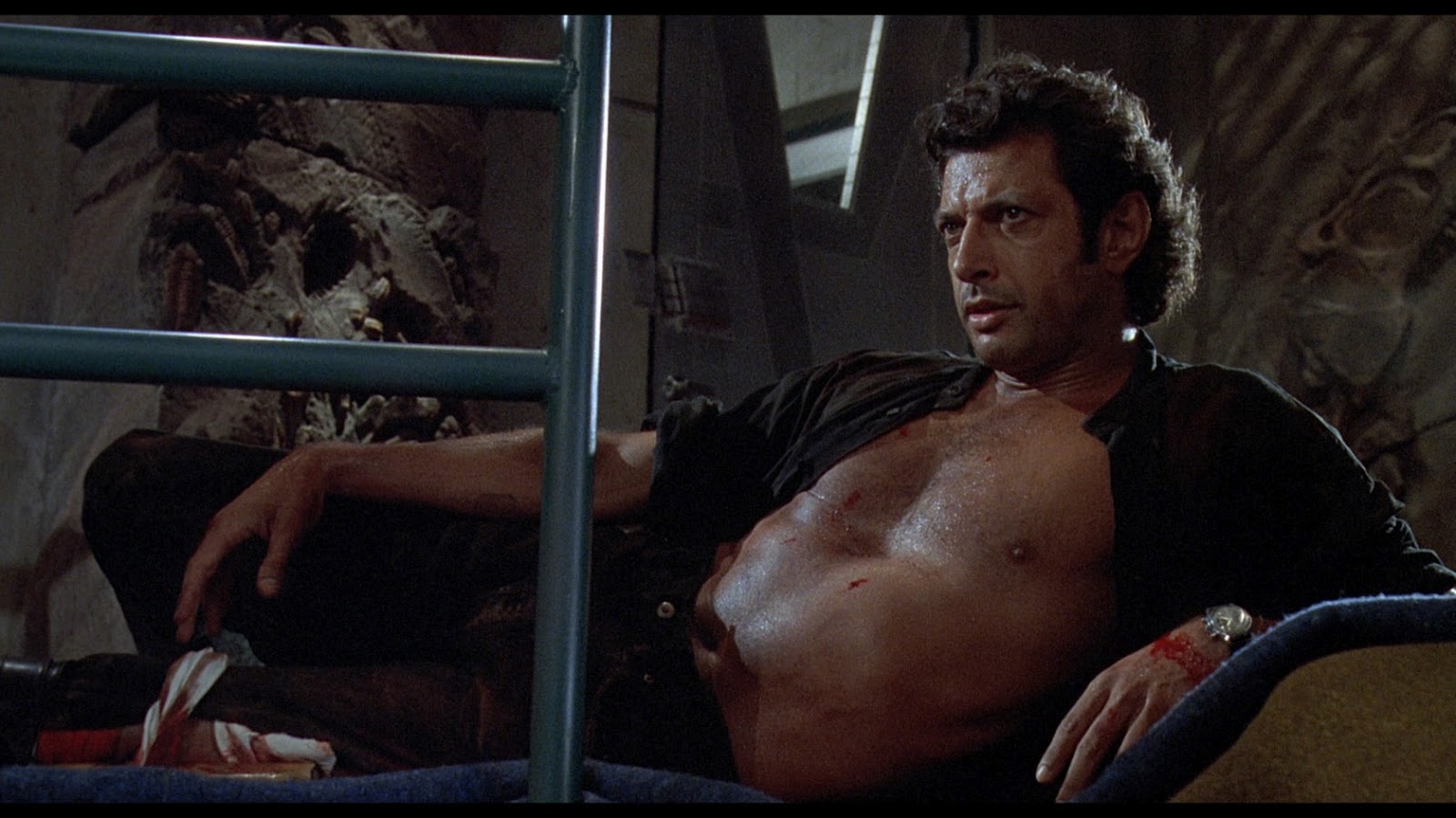Hello readers,
This week we are going to talk about the overall theme of fictional characters in your stories playing God, or YOU playing God as a writer. This complex topic doesn’t appear a lot and I generally don’t get to offer my two cents on it. So, right now I’m very excited to finally have the perfect excuse to write a blog post about a really interesting topic that every hardcore sci-fi/epic fantasy writer would eventually have to deal with: a character armed with forbidden knowledge, either intentionally or unintentionally bringing out absolute disaster and chaos with said forbidden knowledge.

Picture: me, when I realized that I finally get to simultaneously talk about a really complex topic and a really great film.
First and foremost, I am not a writer with years’ of experience in the craft, and never been all that qualified to discuss complex topics to begin with. So naturally, I had decided to use a film that, in my opinion, did everything right on this and break down on a few things surrounding this troupe that had recently become easier to explore.
If you don’t know what’s Jurassic Park: I would automatically assume that you have been living under a rock for the past decade or so, or a robot trying to gain sentience, or a young hipster teen that hadn’t been tainted by the horrors of Jurassic World yet. But since I’m not a person that assumes or judges anyone too unfairly! I’m going to do the polite thing and tell you that Jurassic Park is essentially a film where a doctor cloned dinosaurs back to life from literal fossils of mosquitos and then decided that it would be a good idea to turn that into a theme park ran by people that couldn’t define the phrase ‘poor single nerds’ better if they started spouting Sailor Moon references… Things go wrong from there, when one of the employees decided that it’s much more profitable to sell dinosaur DNA to the highest bidder than sitting in a chair that had been permanently molded into the shape of his butt and released the dinosaurs from their compounds by turning off the power running the security systems (clearly he did not think that through); then a handsome cast of actors are forced to survive on an island where danger was exaggerated to a near-hyperbolic level.

Ahh, we missed you. Welcome back!
1. Be aware of the unforeseen consequences
There’s really not much to this besides plain common sense, but here’s a shockingly large amount of writers who seem to have characters that jumps, leaps, and bounds ahead of other people towards a conclusion that would seem plausible only if you are Sherlock Holmes in a past life or so god-damn high on crack that you wouldn’t even remember how to tie shoelaces. Jurassic Park had a pretty logical cause-and-effect thing going on that isn’t pretentiously clever, but straight-forward and has an interesting ‘twist’ that finally kick-started the part of the story where everyone went 90% Bear Grylls.

Never ever go full Bear Grylls
You can at least kind of comprehend that cloning carnivorous dinosaurs that wants nothing to do with humans, except finding a new home for said unfortunate humans in their stomachs aren’t exactly going to just sit around quietly when there’s electric fences that guarantee the survival of everyone on the island.
Having a logical, yet somewhat surprising consequence from a seemingly awesome project (admit it, you were big on dinosaurs when you were nine too) can give your potential audience the same feelings of insidious knowledge and pride when you tell an inside joke that no one else gets. It builds a sort of trust with the audience since they feel like that epithet had kind of saw it coming and would be more interested in what happened next. Every single one of your potential audience would be seeking for entertainment, and there’s really no better form of entertainment than unforeseen consequences rearing up their ugly heads old-testament style (or a GOT style if you aren’t really all that into the Christianity thing).
2. Doubters are generally an interesting way to explore both sides of the same argument
The point behind Jurassic Park boils down to whether it’s ethical to play God to revive an extinct race of beings that don’t belong in this era. What’s interesting about this is that you can kind of see the logic behind both sides of the argument.
The creator of the park, John Hammond, wants to study the beauty of dinosaurs while also profiting from it. He argues that since it’s possible to create these dinosaurs, why shouldn’t he? Since he technically didn’t break any rules creating the dinosaurs, he can justify that what he is doing isn’t wrong and treats the issues that rises as something that is completely detached to his decision. While he would be right to a certain degree, it wouldn’t necessarily be the right answer.
As one of the scientists that John Hammond had invited to the park, Doctor Ian Malcom argues against cloning the dinosaurs as he commentates over some finer aspect of the philosophical implications of cloning the dinosaurs such as how the revival of dinosaurs is essentially “Man destroying God.”
In a sense, you can see how both sides have their own reasoning, such as John Hammond’s curiosity in the dinosaurs and his burning desire for money over common sense; while you can see Doctor Malcom talking about how even when “[the Disneyland attraction] The Pirates of the Caribbean breaks down, the pirates don’t eat the tourists.” Valid points and rebuttals were given from both sides and this in a sense might motivate the targeted audience to become more interested in the story as each of the characters become more and more flushed out and how each individual’s motivations differs. Giving readers, people to emote and sympathize with, and subtly compels them to find out what happens to their favorite characters in the story.

This… This is what happens to your favorite character.
3. The moral implications of what’s happening
Eventually everyone realizes that even if one sacrifices a lot of people in order to achieve the greater good, the consequence seemed to be worse than the perceived reward for the characters. It’s almost like a rebelling of the story of ‘Pandora’s box’ for the modern audience as the familiar things that should never be done was done to satisfy mankind’s hunger for knowledge and scientific advances.
Discussing morals and weighing up the consequences of the actions committed for a short-term goal (example: money) is a brilliant way of telling your audience that you aren’t treating them as idiots and could give many writers an opportunity to explore skewed senses of right and wrong. Whether you should do something just because you have the ability to do it.
There’s still plenty of things that you could talk about and theorize at length when writing about people who decided to play God. A writer would want to offer value in their writing in order to gain readers’ interest, and by offering a viewpoint from their own perspective is something that had been proven to be an effective way to offer value, time and time again.
That’s why there’s almost always an ironic commentator in complex stories breaking down on some of the things that are happening. Ian Malcom, in Jurassic Park essentially became the fictionalized version of the writer himself and offered insights on whether we should try and control things that are more powerful than us, whether it is ultimately only an illusion of control that was maintained.
Readers want intelligent characters that are capable of resonating with their beliefs of right and wrong, by offering a complex story while not belittling your audience can go a great deal further than a naive hero that believes in justifying senseless violence in fantasy.
4. The ultimate realization of the consequences of their actions
So following up from the point above, we want the fictional guy who had either intentionally or unintentionally committed acts of atrocities to understand the weight of their action could very well endanger the lives of others. We readers, had believed that justice demands retribution, since we were kids after all. That’s why people who break laws go to jail or get executed. There must always be someone to handle the consequences.
This could be seen very, very clearly in the movie Jurassic Park. In the end, John Hammond realized the gravity of his actions, vowed to never make the same mistakes again. We saw him wanting to pay for his actions, and he helped the survivors to escape at the very end because of his heavy guilt towards the people that were sacrificed in order to reach that ending.
5. A heavier differentiation between cliches and original ideas
Jurassic Park wasn’t just a masterpiece that had made both science-fiction and fantasy fans go ‘Wow’, it is also an original piece of work that had set new standards of quality and moved storytelling to a whole new level. While being somewhat logically consistent and intriguing, it also became a classic that writers should learn from.
I heavily dislike the heavy usage of cliches and unoriginal ideas. While there’s nothing wrong with taking inspiration from great works, blatantly ripping off other people’s work isn’t the way to go. This film eventually became an inspirational piece of science-fiction done right. It presents original views of things that were interesting and makes the experience that much more immersive. If a reader spots an easily recognizable cliche or staple of the genre, sometimes that detracts from the experience.
Conclusion
In the end, this had been a fun article to write, and a very interesting experience for me to revisit. I liked this film as a child and still liked it as an semi-responsible, slightly-older nerd. This article is composed entirely of my own opinions, I took a fairly liberal approach to analysing the film and my interpretation of the events may differ from other people’s. I think that it’s a great film many genre writers should at least have a cursory look at, as it presents the overwhelming difference between modern-films (let’s keep pretending Jurassic World and Terminator Genisys never existed) and the classic films that had succeed in telling the story and immersing the audience without using intense CGI and filler materials to puff up the story.
###
 Born in the peaceful land of China, Yicheng Liu is a guy who made the sadistic decision of moving to the dangerous land of Australia at a young age and has since then enjoyed recklessly darkening pieces of dead, processed wood with ink and maniacally laughs as he darkens computer screens with pixelated text when he can’t find processed dead wood. When not doing any of that, he is making stupid jokes and hanging out on twitter under the handle @liu_liu0074 and making pointless Youtube videos on his channel.
Born in the peaceful land of China, Yicheng Liu is a guy who made the sadistic decision of moving to the dangerous land of Australia at a young age and has since then enjoyed recklessly darkening pieces of dead, processed wood with ink and maniacally laughs as he darkens computer screens with pixelated text when he can’t find processed dead wood. When not doing any of that, he is making stupid jokes and hanging out on twitter under the handle @liu_liu0074 and making pointless Youtube videos on his channel.
Also, he would beg you to preorder his funny science fiction thriller book on Inkshares: The Remains of Civilization


Really nice article. I always liked how Hammond and the scientists were portrayed in the novel rather than in the film. And I actually adored Jurassic World(not as much as park), though I agree wholeheartedly that CGI was overused to the point that it became annoying. Animatronic creatures really there in the frame are hard to beat.
Hello, sorry for the slow response. But I personally had been talking about the film instead of the novel because I haven’t read it yet and want to read it before talking about it. My personal opinions is that while Jurassic World stars a cast of A-list actors that are talented, the story is still hopelessly recycled and glaring plot holes were added in an attempt to give the movie artificial depth. So as a writer, I really wasn’t all that impressed with the ‘oh no, the dinosaur is part-raptor’ scene.
The movie had many issues, but I’m more infuriated that it had managed to smear the quality of the original film by giving us a needless reboot that are more Jurassic Park/ The fan-fiction than a movie produced by a professional studio.
Have a good day.
Reblogged this on The blog of the unknown writer.